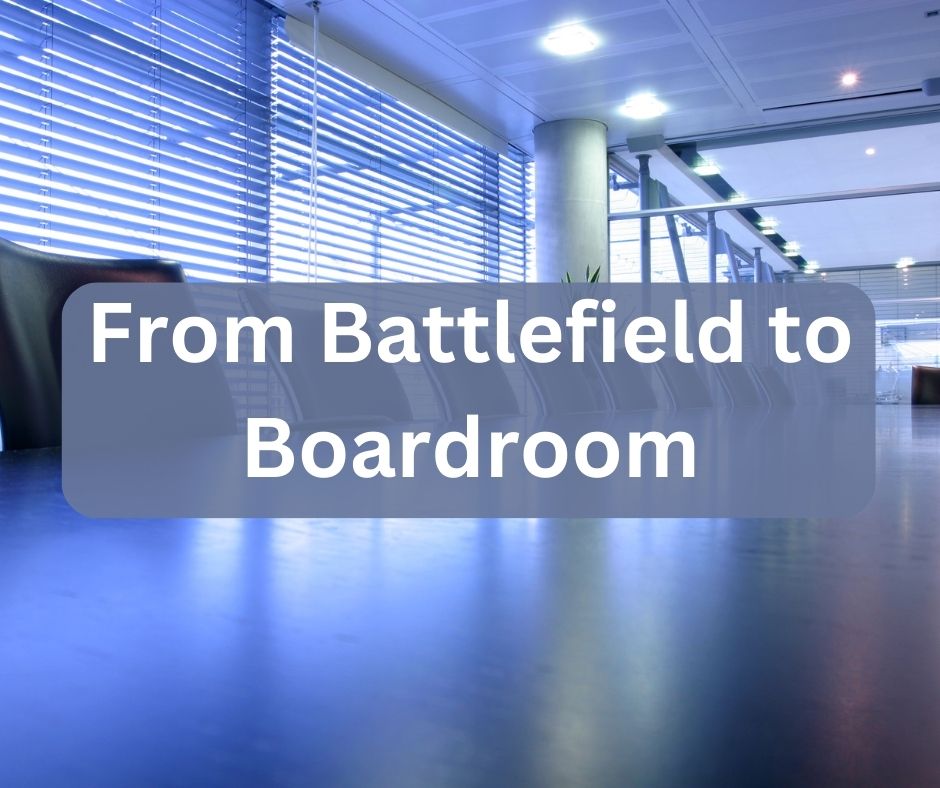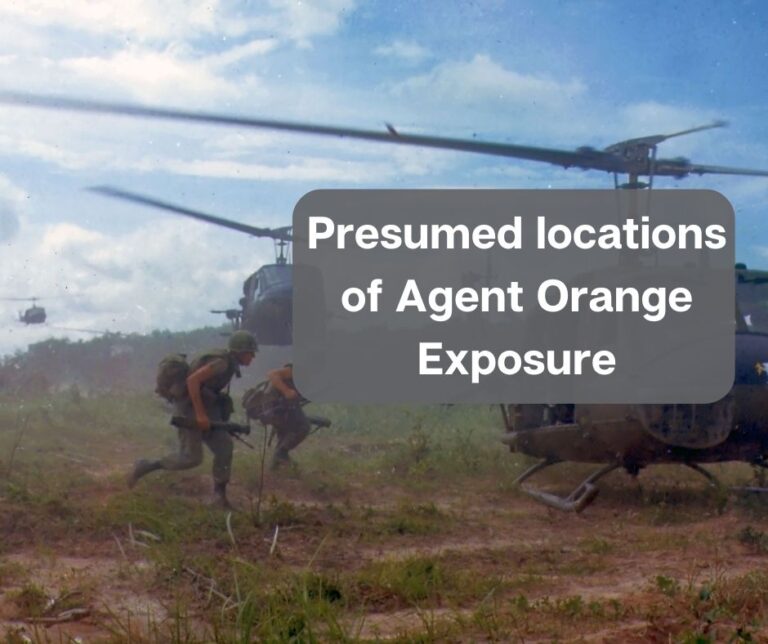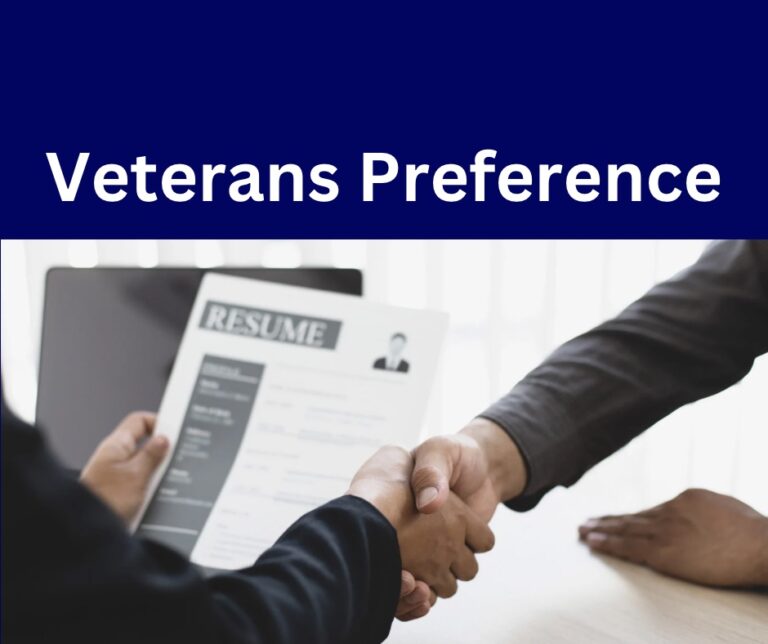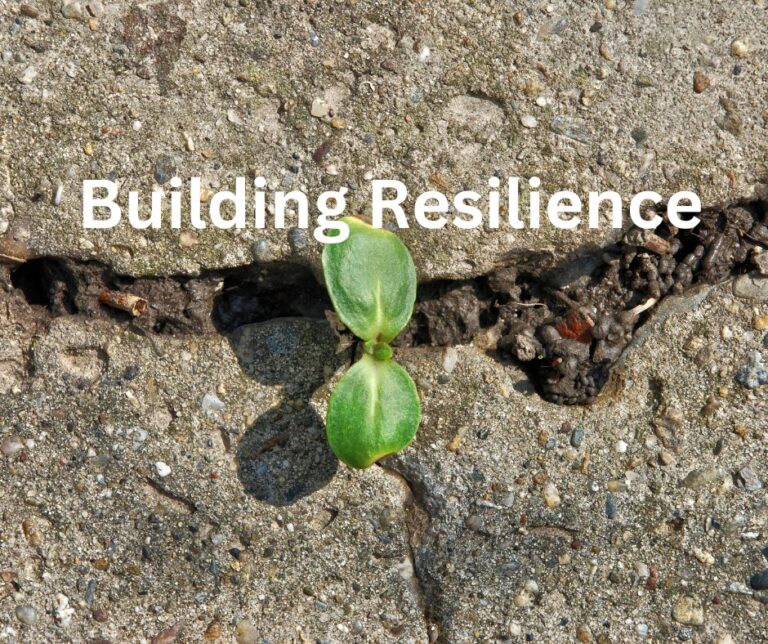From battlefield to boardroom: The skills and traits veterans bring to the workforce
Veterans possess a wide range of skills and attributes that make them valuable assets in the boardroom and corporate environments. While it is understanding that many corporations are asking for experience, the hiring managers often don’t realize exactly what skills Veterans bring to the table. This is just a list of a few skills that most Veterans have from their time in the Service. If you are trying to think of how to translate some of your military duties, you can translate your awards into skills and strengths with our handy Award to Resume chart. You can get a copy from the NWAVet Resource Library. Simply sign up with your email in the box to the right and you will receive an email with the link and password to the library.
Leadership
Veterans bring exceptional leadership qualities to the boardroom, making them invaluable assets in guiding organizations towards success. Through their military service, veterans have undergone rigorous leadership training and gained practical experience in leading diverse teams in challenging and high-pressure environments. They possess a deep understanding of the importance of effective leadership in driving mission accomplishment and fostering a cohesive and motivated workforce.
In the boardroom, veterans exhibit strong leadership skills that positively influence organizational culture and decision-making. They understand the value of setting a clear vision and goals, inspiring others to work towards a common purpose. Veterans are adept at communicating their vision and rallying teams around shared objectives, motivating individuals to perform at their best. Their ability to articulate a compelling vision creates a sense of purpose and direction within the organization.
Discipline and Resilience:
Veterans bring a wealth of discipline and resilience to the boardroom, which are essential traits for success in the corporate world. Having served in the military, they have undergone rigorous training and experienced demanding environments that have honed their ability to stay focused, committed, and disciplined. This discipline translates into their work ethic, as veterans understand the importance of meeting deadlines, following through on commitments, and delivering high-quality results. They exhibit a strong sense of personal accountability and take ownership of their responsibilities, ensuring that tasks are completed efficiently and effectively.

Moreover, veterans’ resilience is a key asset in the boardroom. They have faced challenging and high-pressure situations during their military service, where adaptability and perseverance were critical to mission success. Veterans have learned to overcome obstacles, think on their feet, and maintain composure in stressful circumstances. This resilience enables them to handle setbacks, setbacks, and navigate through uncertainties in the corporate world. They are not deterred by failure but instead learn from it, remaining steadfast in their pursuit of solutions and continuous improvement.
Teamwork and Collaboration
Military service fosters a deep understanding of teamwork and collaboration. Veterans excel at working in diverse teams, respecting different perspectives, and effectively communicating with colleagues to achieve common goals.
Problem-solving and Decision-making
Veterans bring exceptional problem-solving and decision-making skills to the boardroom, making them valuable assets in guiding organizations towards success. Through their military service, veterans have gained practical experience in analyzing complex situations, making critical decisions, and solving problems under high-pressure circumstances. They possess a unique ability to approach challenges with a systematic and strategic mindset, enabling them to effectively navigate complex business environments.
In the boardroom, veterans exhibit strong problem-solving skills that drive innovative solutions. They are adept at breaking down complex problems into manageable components, conducting thorough analyses, and identifying root causes. Veterans leverage their analytical abilities to gather relevant data, assess risks, and evaluate potential outcomes. This enables them to make informed decisions that align with the organization’s objectives and mitigate potential risks.
Strategic Planning and Execution

Veterans bring a unique skill set of strategic planning and execution to the boardroom, making them valuable assets in guiding organizations towards success. Having served in the military, veterans have received training and experience in developing and implementing strategic plans with meticulous attention to detail. They understand the importance of setting clear objectives, establishing measurable goals, and aligning resources to achieve desired outcomes.
Veterans’ strategic planning capabilities are honed by their experience in working within structured frameworks and considering a range of factors that may impact decision-making. They possess a keen ability to analyze complex situations, identify potential risks and opportunities, and develop comprehensive strategies that maximize organizational effectiveness. Their understanding of the broader mission and vision allows them to align their efforts with the overarching goals of the organization.
Adaptability and Flexibility
Veterans bring a remarkable level of adaptability and flexibility to the boardroom, making them valuable assets in navigating the ever-changing business landscape. Through their military service, veterans have developed a strong capacity to thrive in dynamic and unpredictable environments. They possess a unique ability to quickly adapt to new circumstances, adjust strategies, and remain resilient in the face of challenges.
Veterans bring a remarkable level of adaptability and flexibility to the boardroom, making them valuable assets in navigating the ever-changing business landscape. Through their military service, veterans have developed a strong capacity to thrive in dynamic and unpredictable environments. They possess a unique ability to quickly adapt to new circumstances, adjust strategies, and remain resilient in the face of challenges.
In the boardroom, veterans’ adaptability is evident in their willingness to embrace change and explore new possibilities. They understand that business environments are constantly evolving, and they bring a forward-thinking mindset to the table. Veterans are open to new ideas, receptive to feedback, and willing to challenge conventional thinking. Their ability to embrace change and foster a culture of innovation enables organizations to stay agile and responsive in the face of emerging trends and market disruptions.
Intercultural Competence and Diversity Appreciation
Veterans bring a valuable perspective of intercultural competence and diversity appreciation to the boardroom, fostering an inclusive and collaborative work environment. Through their military service, veterans have often worked alongside individuals from diverse backgrounds, cultures, and experiences. This exposure has cultivated their ability to understand and appreciate different perspectives, facilitating effective communication and collaboration with colleagues from various cultural and ethnic backgrounds.
Veterans possess a heightened awareness of the value of diversity in achieving organizational success. They recognize that diverse teams bring a multitude of ideas, insights, and problem-solving approaches, leading to innovative solutions and better decision-making. Their firsthand experience in multicultural environments allows them to navigate cultural nuances, adapt to diverse communication styles, and bridge potential gaps that may arise due to cultural differences.

In the boardroom, veterans contribute to the development of an inclusive and respectful workplace culture. They bring a deep respect for individuals’ unique backgrounds and perspectives, fostering an environment where everyone feels valued and heard. Veterans actively seek diverse viewpoints, inviting diverse voices to contribute to discussions and decision-making processes. Their ability to create a safe and inclusive space encourages open dialogue and collaboration among team members.
Ethical Conduct and Integrity
Veterans bring an unwavering commitment to ethical conduct and integrity to the boardroom, making them invaluable assets in upholding the highest standards of corporate governance and ethical leadership. Through their military service, veterans have been ingrained with core values such as honesty, loyalty, and accountability. They possess a deep understanding of the importance of ethical behavior and the impact it has on the organization’s reputation, trust, and long-term success.
In the boardroom, veterans serve as role models for ethical conduct, inspiring trust and fostering a culture of integrity. They lead by example, demonstrating a strong moral compass and a commitment to doing what is right, even in challenging circumstances. Veterans understand that ethical leadership is not just about complying with regulations and policies but also about making principled decisions that consider the best interests of all stakeholders.
Moreover, veterans possess a heightened sense of responsibility and accountability. They understand that their decisions and actions have far-reaching consequences and impact the lives of individuals within and outside the organization. Veterans take ownership of their responsibilities and hold themselves and others accountable for ethical behavior. Their unwavering commitment to doing the right thing promotes a culture of accountability in the boardroom and throughout the organization.
Project Management
Veterans often have experience in project management, coordinating and executing complex initiatives with multiple stakeholders, strict timelines, and limited resources. They can effectively plan, organize, and execute projects to achieve desired outcomes.
Risk Management
Veterans bring a valuable skill set of risk management to the boardroom, contributing to the overall success and resilience of organizations. Through their military service, veterans have gained firsthand experience in identifying, assessing, and mitigating risks in high-stakes environments. They possess a keen ability to anticipate potential threats, analyze vulnerabilities, and develop strategies to minimize or eliminate risks.
In the boardroom, veterans’ risk management expertise helps organizations navigate uncertainties and make informed decisions. They are skilled at conducting thorough risk assessments, considering both internal and external factors that may impact the organization’s operations, reputation, and strategic goals. By identifying potential risks early on, veterans enable the board and management to take proactive measures to prevent or mitigate adverse impacts.
Furthermore, veterans excel at developing risk mitigation plans and implementing effective controls. They understand the importance of establishing contingency plans and alternate courses of action to address potential disruptions. Veterans’ ability to think critically and develop robust risk management strategies ensures that organizations are well-prepared to respond to unforeseen events and adapt to changing circumstances.
So next time you are facing the dreaded resume, or even getting ready for an interview, take a look at your skills from the military. This includes both hard skills from your job and soft skills that all of us learn. You have a lot to offer in any position!
God Bless, NWAVet







